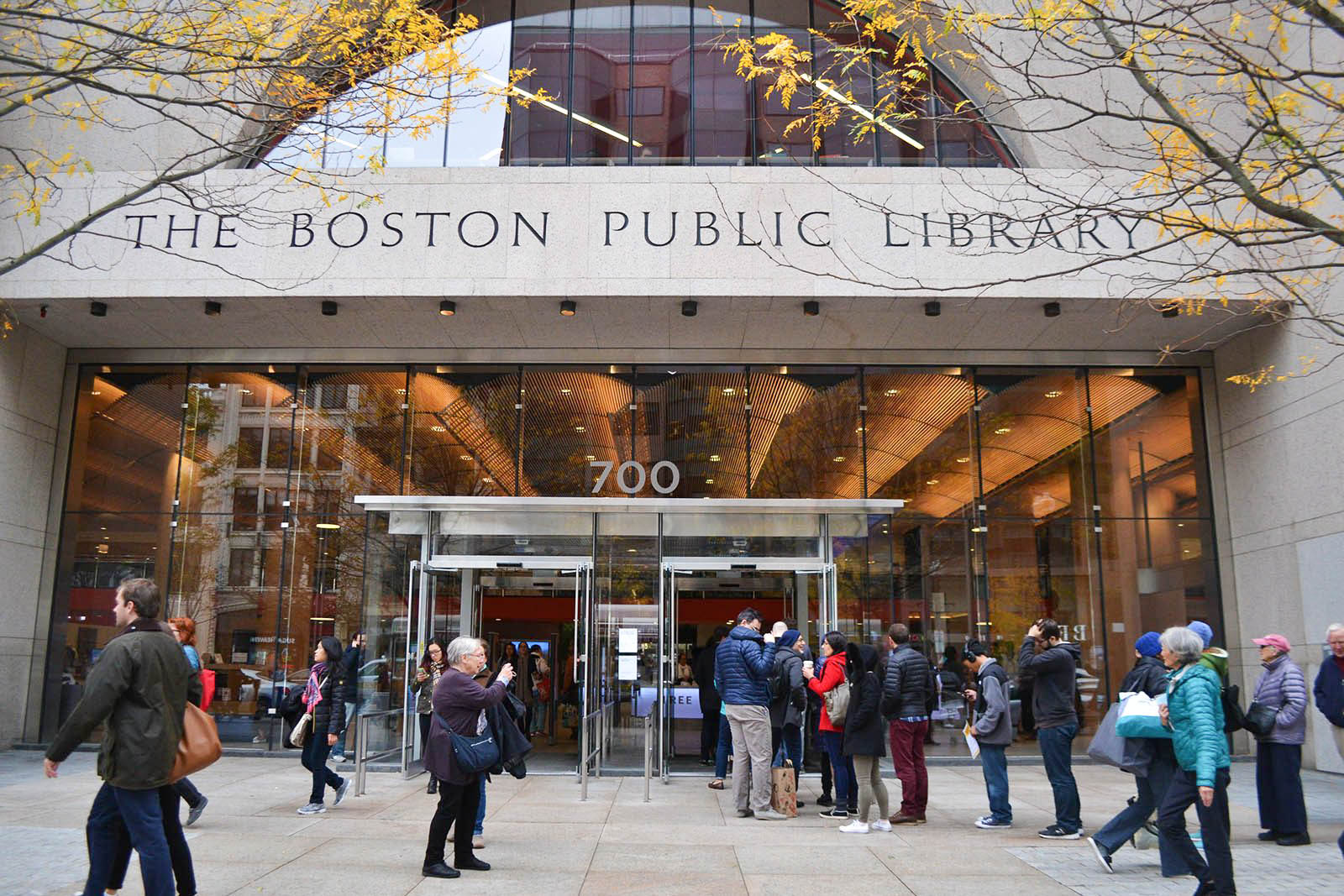
All but one of the at-large candidates for Boston’s City Council convened at the Boston Public Library Wednesday night for a forum in which city residents pressed the contenders on their stances on energy and environmental issues.
The discussion, hosted in part by the Environmental League of Massachusetts, addressed a range of topics, from the youth-led climate strike in City Hall Plaza in September to the inefficiency allegedly plaguing Boston’s public transportation system. Four Boston residents each posed their own question for the candidates, who then had two minutes each to respond.
The at-large City Council candidates in attendance were current City Councilors At-Large Anissa Essaibi George, Michael Flaherty and Michelle Wu; Julia Mejia, founder and executive director of the Collaborative Parent Leadership Action Network; David Halbert, deputy director of community affairs at the Middlesex Sheriff’s Office; Alejandra St. Guillen, former director of the City of Boston’s Office for Immigrant Advancement; and Erin Murphy, a teacher for Boston Public Schools.
Among all the challenges that major cities like Boston face every day, energy and environmental issues are some of the most pressing right now, according to Katie Burnett, program manager for the ELM.
“Boston is a coastal city,” Burnett said. “We’re on the front lines of things like the ocean rising and pollution and we have higher asthma rates than people who don’t live in cities, so addressing all these things is not only nice for our city, but it helps our people and leads to having a healthier lifestyle.”
Wu praised the climate strikes after the discussion, emphasizing the importance of the ongoing campaign to promote renewable energy initiatives, of which the Global Climate Strike was a part.
“One of the most important pieces of [the movement] is lifting up and following the lead of youth organizers,” Wu told The Daily Free Press. “This is a movement that young people are taking all the way there and I’m just happy to be along for the ride.”
Wednesday’s forum, Wu said, was successful in placing climate reform at the forefront of the city council’s agenda.
“It was great to see people out on a very busy weeknight to talk about one of the most important issues in the city,” Wu said. “We had a great conversation and all the candidates have ideas and commitments to make sure that climate justice is front and center, and that the City of Boston is a leader on that.”
Boston residents listening in on the discussion said they agreed with the candidates in that climate and energy issues are among the most important topics of debate this election cycle.
Roger Tepe, 68, of South Boston, said he believes environmental issues are sometimes overlooked, and forums such as this one could help to mitigate that.
“I think there’s been not enough coverage of environmental issues,” Tepe said. “Everyone’s so worried about everything else under the sun. The climate is kind of getting lost in the shuffle.”
Gabriela Cartagena, 23, from East Boston, said she feels that forums like this are beneficial, but could be extended throughout other neighborhoods in Boston.
“I think it’d be a lot more effective having these forums all throughout the different neighborhoods in Boston, since so many folks can’t make it right now, especially working-class families.”
Fatima Ali-Salaam, 53, of Mattapan, said the challenges created by climate change overlap with other pressing matters, such as affordable housing and transportation.
“One of the problems is that when you exclude energy and environmental issues from the mainstream discussion, you’re not taking into consideration the entire picture,” Ali-Salaam said. “We all live within one ecosystem and just as the neighborhoods are all part of one city, it’s all still one. It’s one system.”




















































































































